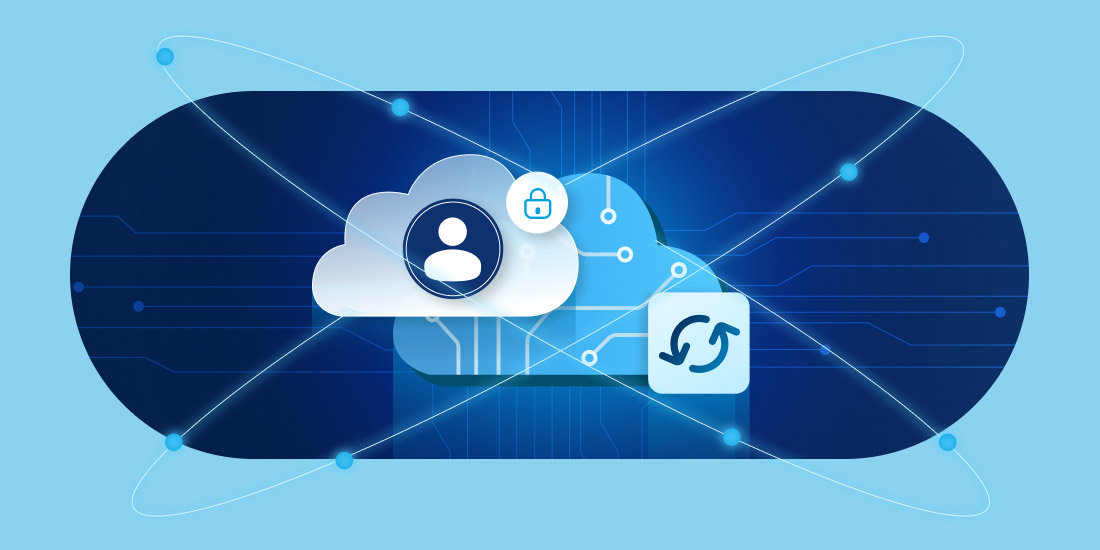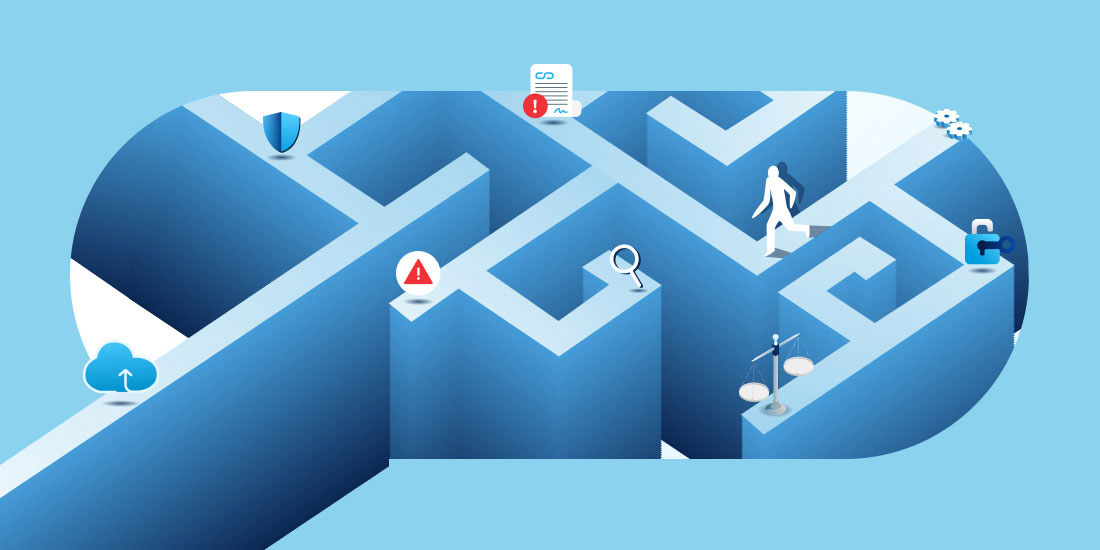Estimated Reading Time: 4 Minutes
Table of Contents
Maintaining business continuity has become critical to survival of today’s organizations as they face evolving cyber threats and simple human error. That’s why Dropsuite’s mission of helping businesses stay in business has never been more relevant.
Protecting your identity settings is an often-overlooked aspect of a solid data security plan, yet one that could keep your business from going under in an emergency.
Why Access Is the First to Break
For years, MSPs built data protection strategies around content. Emails, documents, calendars, and collaboration platforms like Microsoft SharePoint and Microsoft OneDrive have been the heart of backup planning. It made sense until access itself became the most fragile point of failure.
Today, cyberattacks don’t need to delete data to create disruption. All they have to do is sever access. Increasingly, identity systems that control how users, apps, and devices interact are the real targets.
Microsoft Entra ID has become the gateway to the modern workplace. It determines who can sign in, what they can access, and under what conditions. But that gateway is more vulnerable than many realize. A ransomware attack can corrupt it. A junior admin can accidentally remove critical policies. Even a small misconfiguration can quietly weaken security posture over time, with no easy way to detect or undo the damage.
When Microsoft Entra ID breaks, businesses don’t just lose access. They lose control. And when control is gone, traditional backups aren’t enough to bring them back.
When Recovery Isn’t Enough
One of the most common post-breach challenges MSPs face is restoring user access after an identity compromise. Recovering data is often the easy part. Getting people back into email, Microsoft Teams, SharePoint, and the full ecosystem of cloud apps governed by Microsoft Entra ID? That’s where recovery grinds to a halt.
Imagine this: a client suffers a ransomware attack. All their files are safe, backed up, and technically recoverable. But Microsoft Entra ID is compromised. Access policies, multi-factor authentication (MFA) configurations, and app permissions are corrupted or missing. No one can open their email, launch Teams, or reach critical files.
Even though the data is there, the business is still locked out.
Rebuilding Microsoft Entra ID settings from scratch isn’t quick, clean, or guaranteed to restore operations to the same secure baseline. Without a trusted backup, MSPs are left piecing together what policies used to look like, often with incomplete information, while clients grow increasingly frustrated.
And it’s not just cyberattacks that cause these breakdowns. A simple misconfigured conditional access policy or a disabled MFA setting can easily create the same downtime and disruption.
Today, resilience doesn’t just mean recovering data. It means restoring secure, functional access. Protecting Microsoft Entra ID configurations such as policies, permissions, and conditional access rules gives MSPs the ability to undo mistakes. They can recover from identity-based attacks faster and preserve the frameworks that your team worked so hard to design for your clients. You move from reactive support to proactive resilience.
Who Can Use Entra Backup?
The reality is that not every business uses Microsoft Entra ID the same way. MSPs are under pressure to deliver right-sized solutions that balance protection with cost.
The Verizon 2025 Data Breach Investigations Report analyzed over 22,000 security incidents, including 12,195 data breaches. Smaller organizations were impacted by ransomware in a staggering 88% of breaches.

For small businesses — say, 25 users or fewer — adding Dropsuite Entra Backup to a bundle is typically low friction. The per-user cost is minimal, and these organizations often run their entire operations inside Microsoft 365, so protecting identity is a no-brainer.
And yet, that’s also when the stakes are highest. Larger companies have more complex access hierarchies, more devices, more apps — essentially upping their risk if identity fails.
When ‘Optional’ Becomes ‘Essential’
The challenge for MSPs is to move Entra Backup out of the “nice-to-have” column into the “important-to-have” column.
According to a Microsoft Entra ID article, “Unintended deletions and misconfigurations will happen to your tenant. To minimize the impact of these unintended events, you must prepare for their occurrence.”
Here’s what happens when Microsoft Entra ID isn’t protected:
- A ransomware attack locks down access controls.
- A well-meaning technician misconfigures MFA or disables a policy.
- Users are locked out, help-desk tickets pile up, and business stalls.
You might be able to recover the data, but if users can’t get in, recovery is meaningless. And for your clients, that means lost productivity, potential compliance risks, and broken trust in their systems — and in you.
A Conversation MSPs Need to Start Having
It’s not always easy to talk to clients about identity protection. But it starts with a simple question: what happens if your team can’t log in, even after the files are back?
From there, it’s about elevating client awareness of the real-world risks and the operational cost of having to recreate identity configurations manually. It’s also about demonstrating that, as their MSP, you’re thinking ahead not just about backups, but about continuity.
Clients might not always ask for identity backup. But when something goes wrong, it’s the first thing they wish they had.
MSPs don’t need to bundle Entra Backup for every single customer, but it’s important to know which customers truly depend on it and how to frame the value. If a business runs their entire operation through Microsoft 365 — email, Teams, apps, workflows — then identity is not a secondary system. It’s their control panel.
For clients in healthcare, finance, legal, or education sectors, where access control is tightly linked to compliance, Microsoft Entra ID configurations are part of their operational safety net. For growing companies with distributed teams, layered security, and applications tied to Microsoft Entra ID, the risk of misconfiguration or access failure increases exponentially.
In such cases, skipping identity backup isn’t saving money. It’s pushing a critical vulnerability under the rug.
The Future of Cyber Resilience Starts with Access
For small businesses, identity backup is a smart, low-friction safeguard. For larger businesses, it’s a strategic investment in continuity. Either way, your clients rely on you not just to recover what’s been lost but to keep their operations intact when threats emerge.
The role of the MSP is evolving. It’s no longer just about restoring systems after a crash. It’s about building resilience that can withstand evolving cyber threats. Microsoft Entra ID is at the center of how modern businesses operate. It’s also one of the most overlooked vulnerabilities in today’s backup strategies.
By offering Entra Backup as part of your services, you do more than fill a gap. You raise the bar. You position your MSP as a security-first, business-continuity-driven partner they can trust.
Because when clients get locked out, it doesn’t matter how good your file recovery is. What matters is whether you can bring the business back online fully, securely, and without compromise.
Explore how Entra Backup from Dropsuite can help you restore control, secure identity, and earn client trust before disaster strikes.
Restore Control Before Disaster Strikes
Discover how Dropsuite’s Entra Backup can help you restore control, secure identity, and earn client trust.






